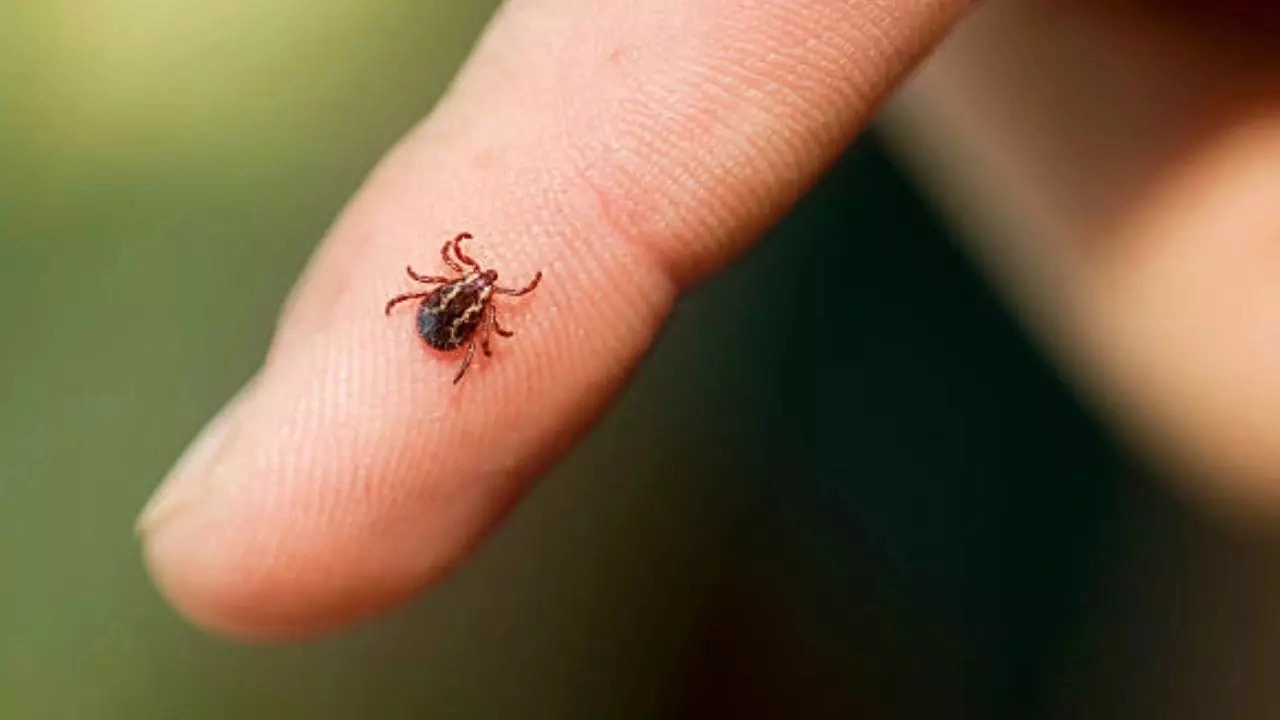Pallavi Mehra • 10 Oct 2024
Tick-Borne Babesiosis Cases Surge In The US—Is Your Health At Risk?

Tick-Borne Babesiosis Cases Surge In The US—Is Your Health At Risk? (Image Credits: iStock)
A recent study has revealed a steady rise in cases of babesiosis, a tick-borne parasitic disease, across the United States. Researchers from Penn State Health Milton S. Hershey Medical Center found that between 2015 and 2022, the number of babesiosis cases increased by an average of 9 per cent annually. The study, published in the journal Open Forum Infectious Diseases, also highlighted a significant overlap between babesiosis and other tick-borne illnesses, with 42 per cent of those diagnosed with babesiosis also suffering from infections like Lyme disease.
Lead researcher Dr Paddy Ssentongo, an infectious disease expert, emphasized the importance of clinicians being vigilant for co-infections in patients with babesiosis. "Ticks can carry multiple pathogens, including those that cause Lyme disease, anaplasmosis, and ehrlichiosis," he noted. This means that individuals diagnosed with babesiosis may also be at risk for other tick-borne diseases, though the study found that having multiple infections did not increase the risk of death.
Babesiosis, often referred to as "American malaria," affects a person’s red blood cells like malaria, according to the researchers. The disease is primarily transmitted through the bite of black-legged ticks and is most prevalent in Northeastern and Midwestern states. While many infected individuals experience flu-like symptoms, babesiosis can be life-threatening for older adults, those with compromised immune systems, and individuals without a spleen.
The study, which analyzed health data from over 250 million Americans, identified more than 3,500 babesiosis cases during the study period. Cases peaked during the summer months, particularly in Northeastern states. Among those infected with babesiosis, 41 per cent were also diagnosed with Lyme disease, further demonstrating the need for healthcare providers to consider multiple tick-borne infections when treating patients.
Interestingly, despite the co-infections, there was no increase in mortality rates among patients with multiple tick-borne diseases. Dr Ssentongo suggested that the presence of more than one infection might boost the immune response, helping the body to fight off the illnesses more effectively. He also pointed out that doxycycline, the antibiotic commonly used to treat Lyme disease, may also be effective against the babesia parasite, which could explain the positive outcomes seen in patients treated with this approach.
The rising cases of babesiosis are likely influenced by climate change, according to Dr Ssentongo. Warmer weather and increased rainfall create favourable conditions for ticks and their animal hosts, such as deer, to thrive. As a result, the range and activity of ticks are expanding, increasing the risk of babesiosis in previously unaffected areas.
Dr Ssentongo advises people living in regions where babesiosis is common, particularly in the Northeast and Midwest, to take precautions during the summer months. "Wear long-sleeved shirts, pants, and light-coloured clothing, use tick repellant, and check for ticks after spending time outdoors," he recommended, stressing the importance of tick-bite prevention to reduce the risk of infection.
Get Latest News Live on Times Now along with Breaking News and Top Headlines from Health and around the world.